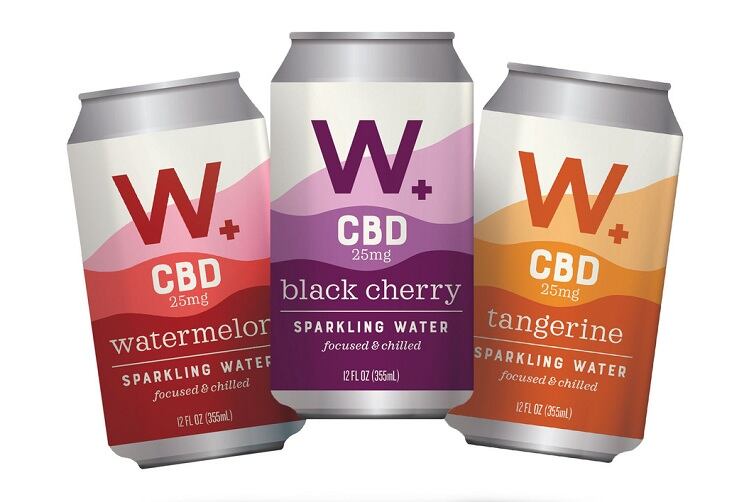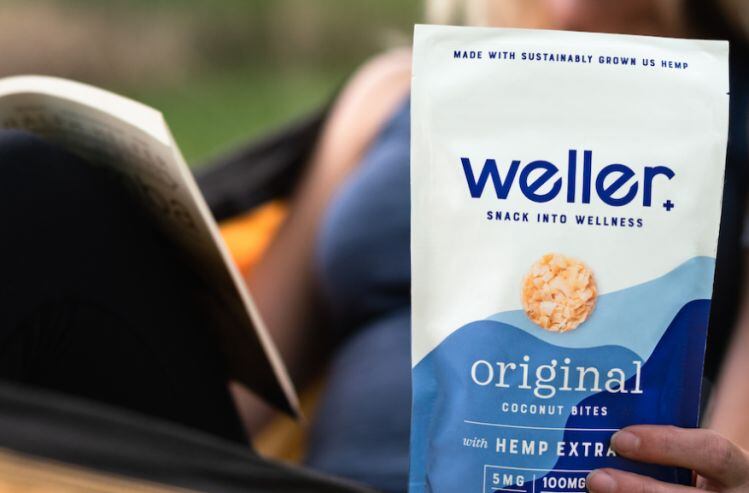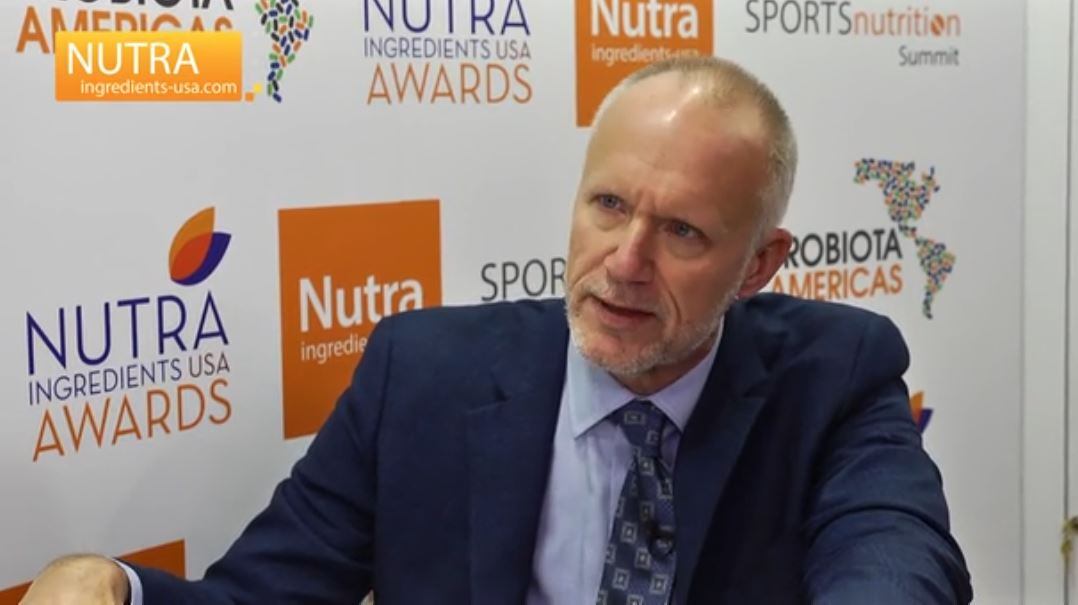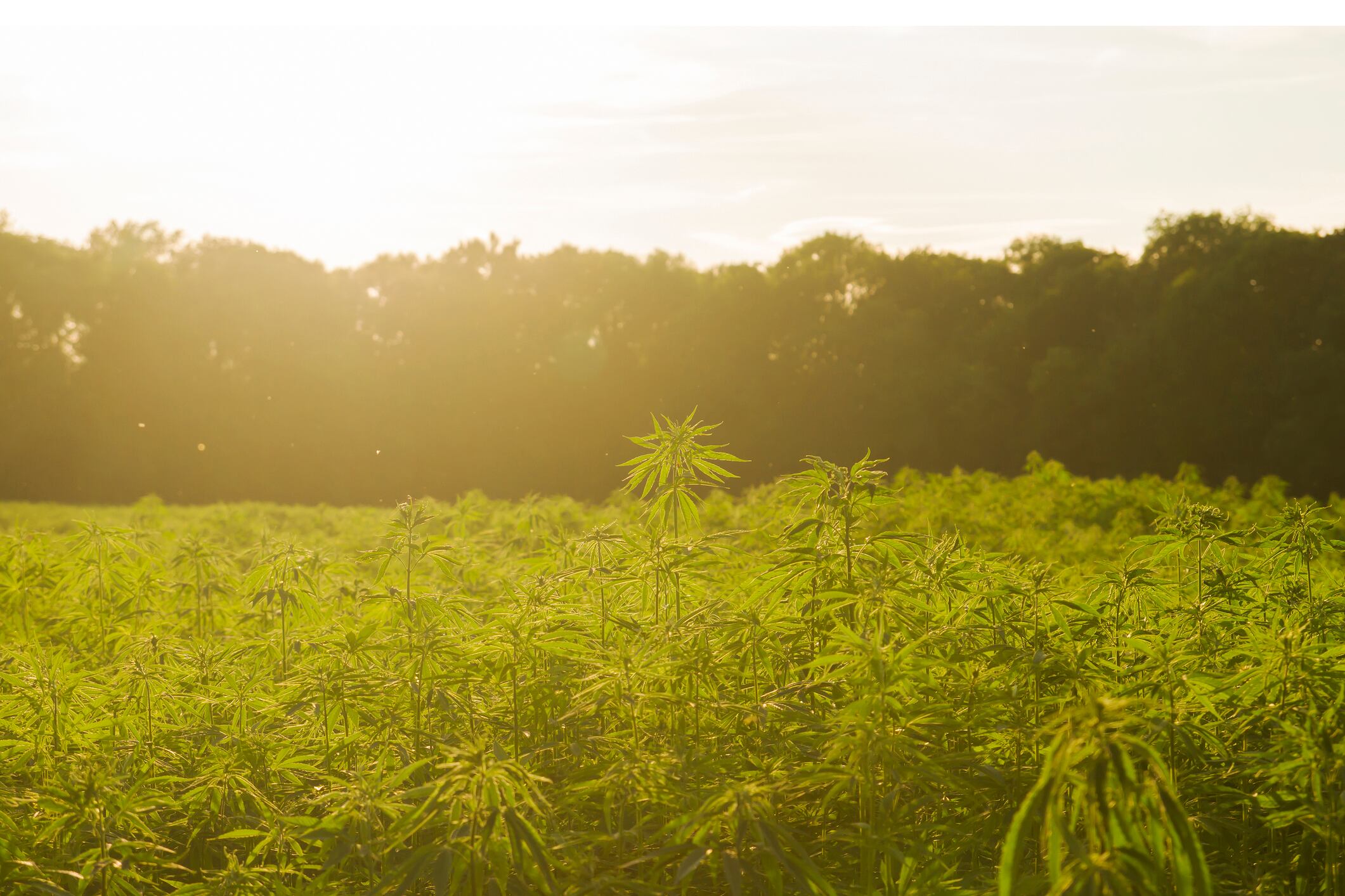(Click HERE to read the FDA’s December 20, 2018, statement, in which it also announced plans to hold a public meeting exploring “lawful pathways by which products containing cannabis or cannabis-derived compounds can be marketed.”)
In the meantime, boosted by the passage of the Farm Bill (which removed hemp from Schedule I of the Controlled Substances Act), many food and beverage brands are navigating their way through this regulatory minefield by utilizing ‘full spectrum hemp extracts’ in which CBD is a component but has not been isolated or modified.
Some brands using such hemp extracts mention CBD on pack, others do not, a decision taken in consultation with attorneys and potential retail customers, say Matt Oscamou and John Simmons, co-founders of Boulder-based Weller, a new company focused on hemp extracts, which launched in 2018 with a line of coconut bites (with 25mg of CBD per serving), and is gearing up to launch a new sparkling beverage this year with the same dosage.
One packaging format says ‘hemp extract’ and one says ‘CBD,’ it depends on the comfort level of the retailer
According to Oscamou, who has a background in the snacks industry (he founded Frontier Snacks, which has been wound down as he focuses on his new venture), “Legal advice is tricky in this area, but we are registered with the Colorado department of public health as a CBD manufacturing facility and Colorado state law allows for CBD explicitly to be used in food and beverage. We take in as much information as we can and we have dual packaging for our products."
According to Simmons, who founded beverage brand Third Street Chai, “We want to be the best partner possible. One packaging format for our products says ‘hemp extract’ and one says ‘CBD,’ and it depends on the comfort level of the retailer, but we’re not making any health claims about the products, which is something the FDA is particularly concerned about [in its Dec 20 statement, the FDA stressed that ‘Where we believe consumers are being put at risk, the FDA will warn consumers and take enforcement actions’].”
‘The landscape is shifting'
Weller launched its wares on its own website and on Amazon and has since picked up distribution at a growing number of bricks & mortar stores, from independents, to chains such as Lucky’s and Lassens, he said. However, larger conventional retailers have also shown strong interest, with Wegmans and Giant Eagle recently agreeing to take the brand on, added Oscamou, who said Weller had raised $1.25m in early 2018 from Michael Dearing, a former SVP at eBay, and is currently raising additional capital.
“The Farm Bill was definitely a trigger for many retailers to participate in the category, but no one knows how the market will develop at this stage. I think that they all see the value of communicating CBD to consumers, but not all of them are comfortable going full [throttle] into CBD plus they are also dealing with the complexities of state laws as well as federal law in this area.”
Asked what is holding some larger retailers back, “It’s a bit of a guessing game for brands and brokers in the space,” said Simmons. “From what we’ve heard there was a bit of jockeying to be second in the space, but no one wanted to be first. But after the Farm Bill, we’ve seen a change.”
He added: “The landscape is shifting and there’s certainly some clarity needed from the FDA but we’re not selling pharmaceutical level purity CBD such as the ingredient in Epidiolex [the CBD drug recently approved by the FDA for rare forms of epilepsy]. We’re selling products with a broad spectrum hemp extract, which contains the CBD molecule and other minor cannabinoids, flavanoids and other plant compounds which may have synergistic effects.”
As for merchandising in stores, Oscamou and Simmons would ideally like to see retailers build dedicated ‘destination’ CBD-infused product sets, but for now, products are being scattered about the store, he said, with Weller bites appearing in impulse areas, with nutrition bars, and with healthy snacks. “We’re a functional snack.”
We’ve had significant interest from larger retailers in the CBD beverage
As for CBD-infused beverages, said Simmons, retailers are particularly excited about Weller’s new product, a CBD-infused zero calorie sparkling water in 12oz aluminum cans (MSRP $4.99) containing natural flavors and full spectrum hemp extract (25mg CBD per can), with no sweeteners – in black cherry, watermelon, and tangerine flavors.
“There were a lot of challenges in formulating this product, which we started around a year ago, but we feel like we nailed it. We’ve had a lot of interest from every retailer we’ve spoken to including significant interest from the larger retailers.”

Why are consumers buying CBD products?
But why are food and beverage brands such as Weller using CBD in the first place (given that foods and beverages are not drugs, and many of the alleged benefits around CBD are around things like pain management and other indications that stray into the medical arena)?
Is there any health benefit to consuming small quantities of CBD as part of full spectrum hemp extracts in foods and beverages, which have not been subject to clinical trials such as those conducted to support CBD-based epilepsy drug Epidiolex?
According to Oscamou, who acknowledged that there is no clinical data proving the benefits of low doses of full spectrum hemp extracts (which are all different) on anxiety, consumers are trying products for themselves and claiming to experience benefits: “We see a lot of folks looking for help with anxiety and stress relief, and everyone will experience the benefits slightly differently.”
The 25mg dose was based on “practicing with ourselves, our families, our friends, and we keep detailed feedback from everyone we give product to. We feel that 25mg of CBD in a full spectrum hemp extract is a solid start. We don’t make any claims on pack but we say [on the website] that people have found CBD helpful in reducing exercise induced inflammation or managing stress.”
*To quote the FDA, it’s “unlawful under the FD&C Act to introduce food containing added CBD or THC into interstate commerce, or to market CBD or THC products as, or in, dietary supplements, regardless of whether the substances are hemp-derived. This is because both CBD and THC are active ingredients in FDA-approved drugs and were the subject of substantial clinical investigations before they were marketed as foods or dietary supplements [CBD was the subject of an Investigational New Drug (IND) application by GW Pharmaceuticals, which markets the approved CBD drug Epidiolex for the treatment of seizures associated with two rare forms of epilepsy].
"Under the FD&C Act, it’s illegal to introduce drug ingredients like these into the food supply, or to market them as dietary supplements. This is a requirement that we apply across the board to food products that contain substances that are active ingredients in any drug.”
But it added: “Pathways remain available for the FDA to consider whether there are circumstances in which certain cannabis-derived compounds might be permitted in a food or dietary supplement. Although such products are generally prohibited to be introduced in interstate commerce, the FDA has authority to issue a regulation allowing the use of a pharmaceutical ingredient in a food or dietary supplement. We are taking new steps to evaluate whether we should pursue such a process [our emphasis added].
"However, the FDA would only consider doing so if the agency were able to determine that all other requirements in the FD&C Act are met, including those required for food additives or new dietary ingredients.”




